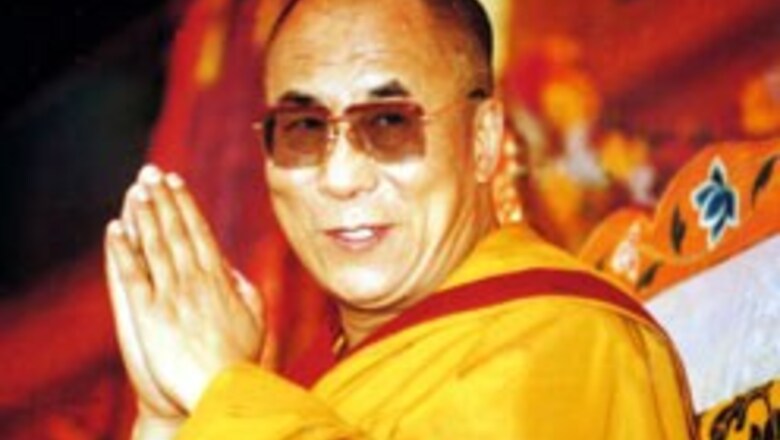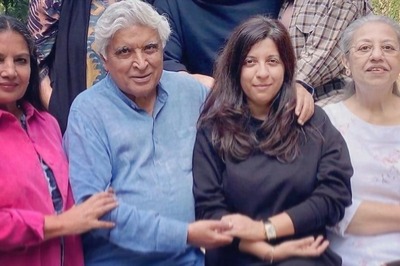
views
Dharamsala: China has launched a scathing attack on the Dalai Lama, saying his favourite concept of 'one country, two systems' is not possible for Tibet.
An article published by China's Tibet Information Center has come down heavily on the Dalai Lama's attempts to reject the political system in Tibet.
The signed article, written by Yedor, copies of which were made available by Tibetan circles, has critically analysed the middle way advocated by the Dalai Lama, pointing out that any attempt to change the current political system in Tibet runs counter to China's constitution and law.
The article says that the Dalai Lama has said Tibet should achieve 'high-level autonomy' or 'real autonomy' according to the 'one country, two systems' principle, and the scope of 'autonomy' should be larger than that for Taiwan, Hong Kong and Macao.
Yedor argues that "a Tibetan government should be set up in Lhasa and should have an elected administrative chief and possess a bicameral legislative organ and an independent judicial system".
The Dalai Lama heads a government-in-exile, which is based in Dharamsala and is not recognised by any country.
He set it up after fleeing from Tibet in 1959.
In November 2005, the Dalai Lama said in the US that Beijing should take care of defence and foreign affairs "because the Tibetans have no experience in this regard, but the Tibetans should have full responsibility for education, economic development, environmental protection and religion".
This, the article says, is obviously different from what he claims for Tibet to work "within the framework of the Chinese constitution" in his advocacy of the "middle way".
A white paper titled National Regional Autonomy in Tibet issued by the Chinese government in 2004 made it clear that unlike Hong Kong and Macao, Tibet was not faced with questions related to the exercise of sovereignty and the possibility of reintroducing another social system.
Any endeavour to destroy and change the current political system in Tibet runs counter to the constitution and law of China.
The 'one country, two systems' refers to the fact that the mainland follows the socialist system while Hong Kong and Macao follow the capitalist system they had followed before, the article says.
However, no capitalist system existed in Tibetan history. What was pursued in the region was feudal serfdom featuring temporal religious administration.
In its own 'constitution of Tibet in exile', the Dalai Lama advocates the reintroduction of the old system featuring 'temporal religious administration'.
According to that system, the Dalai Lama is government and religious leader enjoying a final say on major matters, says the article.
When the Dalai Lama fled overseas, his government in exile continued to follow the old system, with the role of chief Galoon, or 'premier', of the government in exile continuing to be assumed by a high-ranking lama.
"These are the people who are advocating the 'one country, two systems' approach for Tibet. What they can do? Only restore the feudal serfdom, and nothing else," the article adds.


















Comments
0 comment